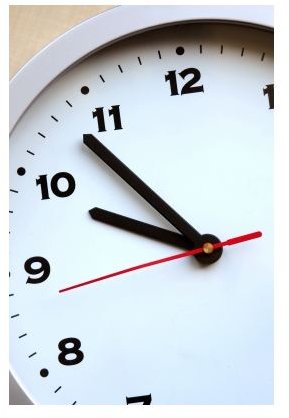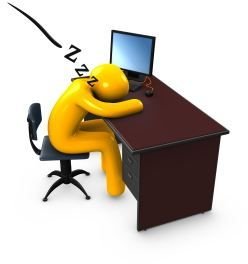Does Your Work Productivity After 8 Hours Get Better or Worse?
Understanding Productivity After 8 Hours
While the current work week for many people is 40 hours worked across five days, this does not always mean that people work these hours in five days. In some cases, time taken off for doctor’s visits, making up time for coming in late and other factors can result in working a nine hour or more day. However, after eight hours, productivity can result in an endless cycle of falling behind.
Typically, most people have cycles of time where they find themselves most productive. In fact, Information Week put out a great article back in 2002 where they showed that Kelloggs found that allowing their employees to work six hour days actually resulted in better productivity. What was not particularly clear was the reason for this increase. However, it was projected that employees were enjoying their off work hours far more and this may have been a contributing factor.
Some of the hazards of working long days include safety hazards. Employees who work in physically demanding jobs may find that they suffer from afternoon “shutdown” and may result in them paying less attention to safety measures. This can often result in accidents occurring on the job. In the cases of mentally taxing jobs such as air traffic controllers, those who work past a standard work day may even find themselves sleeping on the job, creating very hazardous conditions.
Employees who do not work at physical jobs such as programmers, writers, clerks, and other types of desk jobs are not free from a loss of productivity. While these jobs may not include physical labor, they do require mentally taxing work and as a result, the longer the day, the lower the productivity.
Avoiding Mid-Afternoon Slump

Productivity after working for eight hours is not always better than it was during the initial part of the day. Some people find the weather impacts productivity, even on shorter work days. In other cases, employers and employees have worked together to establish productivity goals across a day, week or a month. In most cases, provided the tasks are complete, most employers are interested in the end result and not when the work was accomplished.
The mid-afternoon slump is not uncommon in the workplace. Inevitably, after lunch most companies find that their employees tend to focus less, be less productive and in some cases, even face challenges doing basic tasks. It is not uncommon to see employees watching the clock almost wishing it would move faster. There are some recommendations for avoiding these slumps including:
Eating a lighter lunch - in some cases, what you eat for lunch could have a negative impact on productivity. Eating a lunch that is high in protein may help afternoon productivity.
Exercising at lunch - for some people, a walk or other form of exercise at lunch time can help them be more productive in the afternoon.
Work schedule - planning and prioritizing what work needs to be done can also help productivity. Because productivity after 8 hours does tend to decrease, handling more mentally or physically challenging tasks should be done earlier in the day.
Productivity and Work Life Balance
Generally speaking, most companies found that employees who work more than eight hours are not as productive as those who work fewer hours a day. For those who are self-employed, they often find themselves working very long hours each day. The human body was never intended to sit at a desk for extended periods of time, focusing on a computer screen. After a certain number hours of work, not only do we become physically tired, but we also become mentally tired. For most, a good work-life balance will help all of us be more productive.
Resources
Sources:
- Information Week, Goodrich, Elisabeth, April 08, 2002 Six-Hour Shifts Satisfied Kellogg’s Appetite For Productivity https://www.informationweek.com/news/showArticle.jhtml?articleID=6502155
- Entrepreneur Magazine, Robinson, Joe April 2011 Don’t Melt Down https://www.entrepreneur.com/article/219311
- Executive Coaching, Constandse, Rodger; Executive Coaching Tip – Is Working Long Hours Counterproductive? https://www.executivecoachinghq.com/posts/executive-coaching-tip-working-long-hours-counterproductive.html
Image Credits:
- Procrastination purchased from istockphoto.com/OneO2
- Clock: via freedigitalphotos.net/Suat Eman
